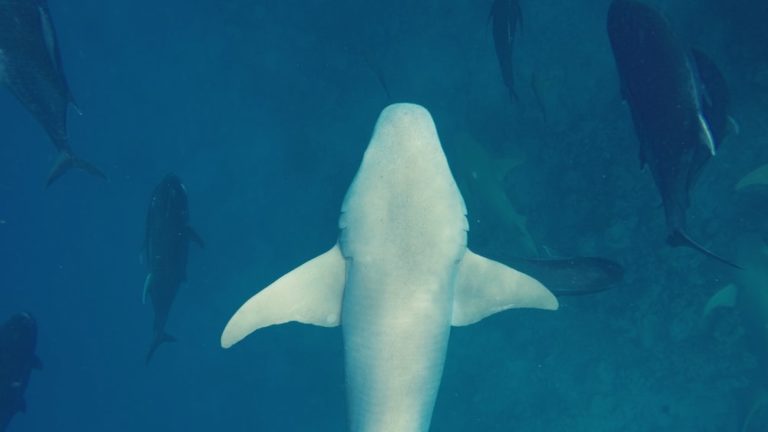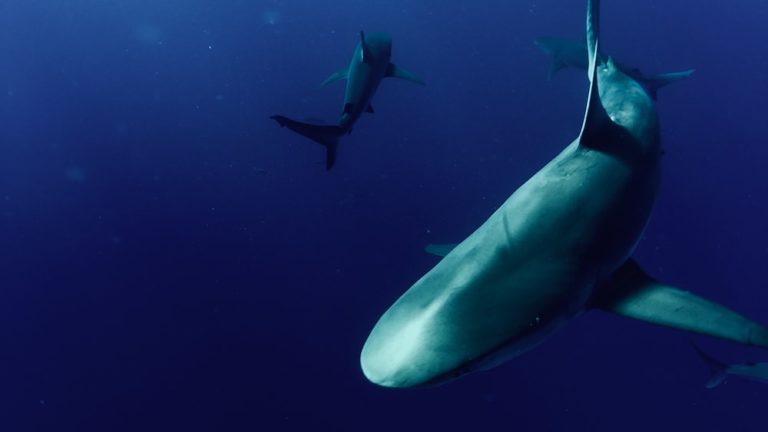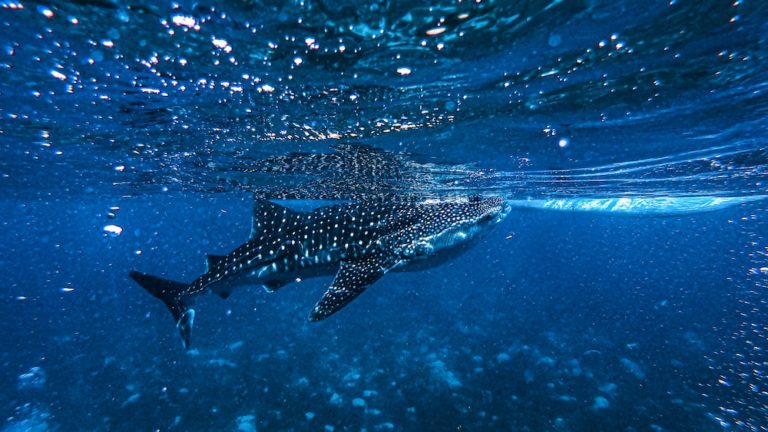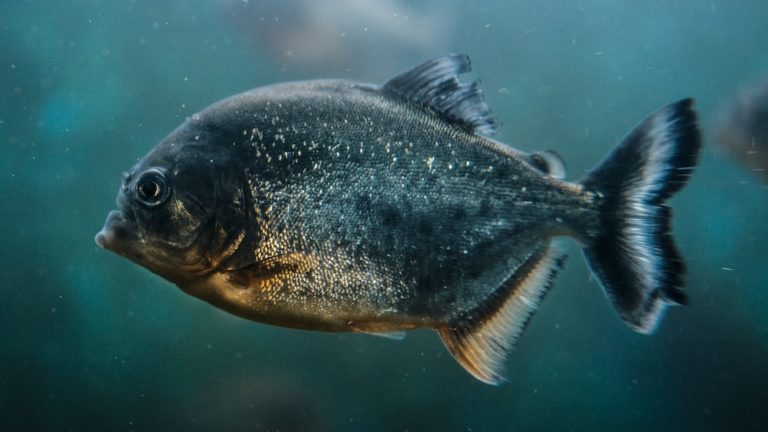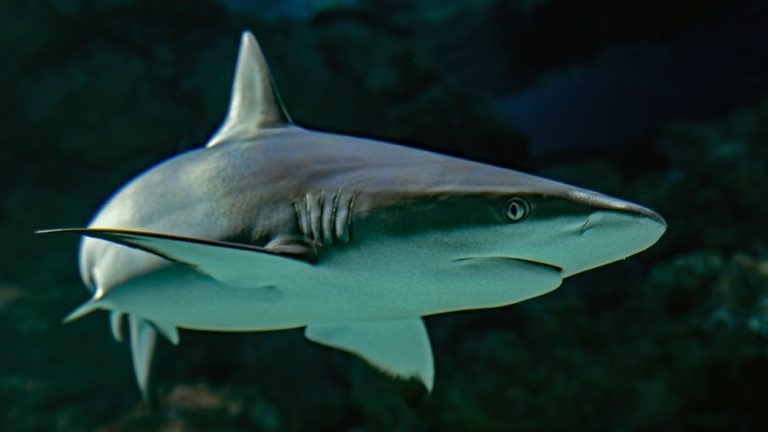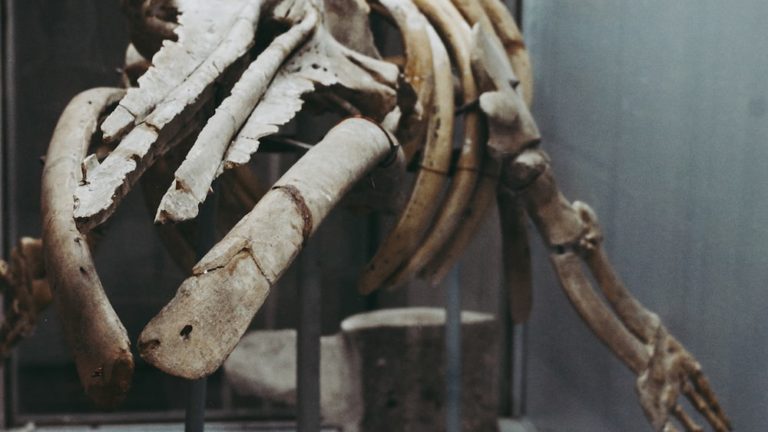Do Orcas Eat Sharks? – Unveiling The Truth
Do Orcas Eat Sharks? – Unveiling The Truth
Dive into the depths with me and let’s unveil the truth about whether do orcas eat sharks. For aficionados of the marine world, you’re in for a salty treat as we explore the dynamic between these ocean giants. Orcas, also known as killer whales, command the seas with grace and power, while sharks, with their fin-tastic allure, have patrolled the waters for centuries.
Key Points:
- Orcas do eat sharks, but it’s more nuanced than a simple predator-prey relationship.
- Orcas have a diverse diet including fish, seals, and squids.
- Orcas target shark livers due to the high nutritional value contained in these organs.
- Orcas employ sophisticated hunting techniques to overwhelm and incapacitate sharks.
The perception of both orcas and sharks as apex predators has often led to mythical stories of their encounters. But let’s leave fiction to the storytellers, shall we? Facts are far more interesting anyway, especially when it comes to the mysteries lurking beneath the waves. The reality of this predator-on-predator action is more intriguing than any sailor’s tall tale.
So gear up for an educational journey through marine biology and conservation that will not only tickle your fancy but also arm you with knowledge about the intricacies of the deep blue. Brace yourself; you’re about to get a first-class ticket to observe one of nature’s most compelling predatory relationships.
The Predatory Behavior of Orcas
When it comes to the predatory prowess of orcas, stories abound of their strategical feats and remarkable intelligence. It’s a cinematic spectacle worthy of the big screen, which reality captures perfectly in the wild expanse of our oceans.
The Hunt for Sharks: An Overview
It is not an unusual tale that orcas, the wolves of the sea, hunt down sharks in a display of dominance and survival. These encounters are less of a battle and more of a stealth operation. Do orcas eat sharks? They certainly do, but it’s more nuanced than a simple game of predator and prey. It’s a dance of power and intelligence where only one emerges triumphant.
Orcas hunting sharks is a strategic display of dominance and survival, showcasing power and intelligence.
Understanding Orca Hunting Techniques
Orcas are masters of adaptation, their hunting techniques as varied as the oceans themselves. Operations are conducted with precision and coordination, often resembling the tactics of wolf packs on the hunt.
Communication and teamwork play critical roles in the orca’s success. These marine mammals employ a variety of methods, from herding to stunning their prey, showcasing an array of strategies as deep and vast as their underwater realm.
The Dietary Habits of Orcas
Orcas don’t just snack on any fish that swims by; their dietary preferences are as complex as their social structures.
What Constitutes an Orca’s Diet?
Orcas’ menus are quite diverse; they don’t limit themselves to a monotonous diet. In truth, an orca has a palate that varies significantly based on its habitat and pod culture, feasting on:
- Fish
- Seals
- Squids
And the question at fin – do orcas eat sharks? Absolutely, though they aren’t the main course, per se.
The Role of Sharks as Prey
In the ocean’s vast canteen, sharks occasionally find themselves on the orca’s plate. When they do, it’s not a random choice; orcas have their reasons for selecting these particular ocean dwellers as prey.
Sharks offer high-energy rewards, and orcas, ever the opportunistic feeders, take full advantage of this. The frequency and selectivity of such predation are what paints the broader picture of the underwater food hierarchy.
Orcas strategically choose sharks as prey in the ocean’s food hierarchy for their high-energy rewards.
Orcas vs. Sharks: The Battle of Apex Predators
When these titans clash, it’s not just a confrontation, it’s a potent declaration of supremacy in the marine food chain.
Analyzing Interactions Between Orcas and Great White Sharks
The dynamics between orcas and great white sharks are particularly fascinating. Both are at the pinnacle of marine predators, yet their interactions suggest a clear hierarchy under the waves. Orcas appear to have an upper fin, navigating the oceans with an aura of authority.
Their confrontations with great whites are calculated; orcas are known to target and incapacitate their formidable foes with surgical precision, a testament to their status as the ocean’s ultimate strategy game masters.
How Other Shark Species Fare Against Orcas
While great whites often steal the limelight in shark tales, orcas do not discriminate when it comes to other shark species. Evidence points to similar hunting tactics across the board, whether against the swift mako shark or the docile benthic nurse shark.
The orca’s approach is a mix of adaptability and opportunity. It tailors its method to the particular strengths and weaknesses of the shark species in question, proving that in the marine world, intelligence and versatility are just as crucial as strength and speed.
The Selective Feeding Patterns of Orcas
When it comes to mealtime, orcas are not indiscriminate eaters. Their feeding habits are selective, with a clear rationale behind every choice they make.
The Fascination with Shark Livers
The cunning orcas, ever so strategic, display a peculiar gastronomic preference that has baffled many of us passionate about marine life. These oceanic predators are particularly fascinated with shark livers. Why, you might ask? It’s dramatic to witness an orca in action, targeting what feels like the treasure chest of nutrients within their fellow apex predators. It’s as though they’ve cracked the code to an all-you-can-eat buffet in the enormous ocean.
What’s behind this fixation is as intriguing as it is gruesome. Orcas have honed in on the fact that shark livers are vast repositories of energy-rich oil, which is essential for their high-powered lifestyle. This behavior reminds us of nature’s complexity, where even the fiercest creatures have developed rather sophisticated dining preferences.
Nutritional Benefits of Squalene and Liver Consumption
The orca’s penchant for shark livers isn’t a mere fluke. These deep dives into their menu options reveal a well-informed choice – shark livers are rich in squalene, a compound that can be considered a liquid gold of the sea. Squalene boasts extraordinary health benefits, including bolstering the orca’s immune system, which is vital in the cold and relentless ocean depths.
By consuming shark livers, not only do orcas take advantage of a highly energy-dense material, but they also enjoy a meal relatively low in contaminants compared to other parts that could accumulate harmful substances. Such a diet shows that orcas aren’t just powerful predators but also savvy foragers of the sea, ensuring they remain robust and ready for any challenge the ocean throws their way.
Orcas are savvy foragers of the sea, consuming shark livers for their rich squalene content, which bolsters their immune system and provides high energy with low contaminants.
The Impact of Orcas on Shark Populations
In an intricate dance of the oceanic ecosystem, orcas, through their dietary choices, wield a significant influence on shark populations. Their taste for sharks doesn’t just sate their appetite but sways the balance of life underwater. Their role as apex predators creates a ripple effect, influencing both the behavior and abundance of their cartilaginous counterparts.
Ecological Consequences of Predation
When orcas target sharks, the impact reverberates throughout the marine food web. With fewer sharks in the water, their prey – typically smaller fish or invertebrates – may experience population booms. The shifting dynamics can trigger changes in habitats and biodiversity, highlighting the orca’s role in maintaining ecological equilibrium. Such predator-prey relationships are a testament to nature’s delicate balancing act, where each species, no matter how small or mighty, plays a part in the grand tapestry of life beneath the waves.
Yet, the ecological tale is more complex than a simple cause-and-effect narrative. As conservationists and observers, we strive to understand how the removal of sharks by orcas might lead to unintended consequences. The cascades in the food chain underscore the intricate connections between all creatures of the sea, where every action, every meal chosen by a predator, carries weight in the underwater world.
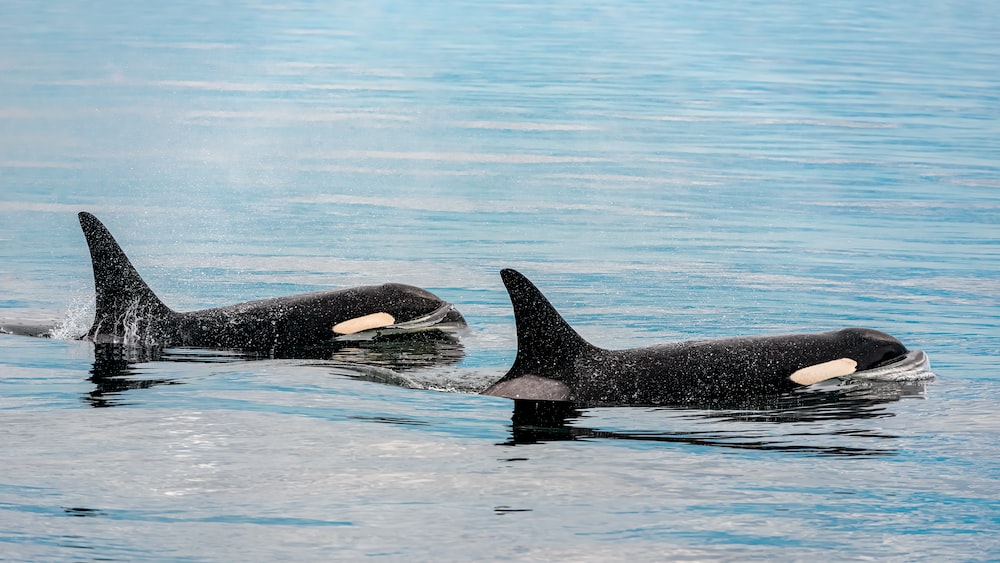
Behavioral Changes in Shark Species Due to Orca Presence
The presence of orcas instills a ripple of caution among shark populations. Altered travel routes and changes in habitat preferences are common behaviors observed in sharks when orcas frequent their territories. This effect, known as the “landscape of fear,” extends far beyond the immediate perils of predation. Sharks, wise to the ways of the orcas, adapt their routines and even their very survival strategies to avoid becoming the orcas’ next feast.
It’s a curious sight: the ocean’s most formidable sharks, going to great lengths to steer clear of their cetacean counterparts. This behavior among sharks exemplifies the intelligence and adaptability of marine life, as they navigate the perils of the open sea while under the watchful gaze of even greater predators.
Sharks alter their behavior and survival strategies to avoid orcas, showcasing their intelligence and adaptability in navigating the perils of the open sea.
FAQs
1. How do orcas hunt and kill sharks?
Orcas employ sophisticated hunting techniques to kill sharks. They utilize their superior speed and agility to overwhelm the shark, flipping them onto their backs to induce a state of tonic immobility. This renders the shark helpless, allowing the orca to then focus on the liver, their prize catch.
2. Why do orcas target the livers of sharks?
Orcas target the livers of sharks due to the high nutritional value contained in these organs. The liver is rich in fat and squalene, which provides crucial energy and health benefits, making it a sought-after meal for these intelligent predators.
3. Are all shark species potential prey for orcas?
Not all shark species are potential prey for orcas. While orcas can and do hunt various types of sharks, their preference and hunting success may vary depending on the size, species, and defense mechanisms of the shark in question.
4. What is the frequency of orca attacks on sharks?
The frequency of orca attacks on sharks is not well documented, but such incidents are considered occasional rather than commonplace. Orcas have diverse diets, and their predation on sharks appears opportunistic, driven by specific ecological conditions and the orcas’ immediate nutritional needs.
Conclusion
Our oceanic adventures often reveal more questions than answers. As we delve into the depths, we uncover the complex interactions that define the marine world. The question “do orcas eat sharks?” opens the door to a fascinating investigation into the behavior of these majestic hunters. The answer intertwines biology, ecology, and the sheer will to survive, in a tale as ancient as the seas themselves.
Understanding these dynamics offers insight not just into the orcas’ dining habits, but into the broader health of our oceans. As marine life enthusiasts and stewards of the sea, observing these behaviors urges us to reflect on our own role and the impact we have on the intricate marine ecosystems. Do orcas eat sharks? Yes, they do, and this knowledge deepens our appreciation of the ocean’s wonders and the responsibility we carry to protect them.
In the grand tapestry of life that unfolds beneath the waves, we are mere observers, privileged to witness the marvels of nature and tasked with their safeguard. May we continue to do so with respect and wonder. Tread lightly, dive deeply, and cherish these aquatic narratives, my fellow ocean dwellers and guardians. Until our next marine chronicle, take care and keep diving into knowledge.
With saltwater in our veins, Jasper Flynn

